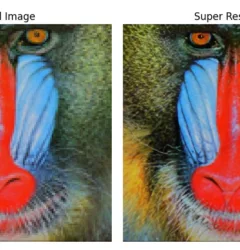Artificial Intelligence (AI) is revolutionizing industries and opening doors to some of the most exciting career opportunities today. If you’re curious about how to become an AI engineer, this comprehensive guide will provide you with the necessary steps, skills, and educational background to help you embark on this career path.
What is AI Engineering?

What Does an AI Engineer Do?
Design AI Models
AI engineers design machine learning models for tasks such as pattern recognition, predictive analytics, and natural language processing.
Develop Algorithms
They create algorithms to help machines learn from data and improve their decision-making capabilities over time.
Work on AI Applications
AI engineers apply their skills in various industries like healthcare (diagnostics), finance (fraud detection), and automotive (self-driving cars).
Why Choose AI Engineering?
High Demand
Competitive Salaries
Innovative Work
Diverse Career Opportunities

Educational Requirements
Key Degrees
Bachelor’s Degree
Computer Science, Data Science, Mathematics, or Software Engineering.
Master’s or Ph.D.
In AI, Machine Learning, or related fields for senior roles or specialized areas like robotics and deep learning.

Recommended Courses

AI engineers need both technical expertise and analytical thinking to succeed. Below are the key skills required
Technical Skills
Programming Languages
Programming Languages
Mathematics & Statistics
Mathematics & Statistics
Machine Learning Algorithms
Machine Learning Algorithms
Data Science & Analytics
Data Science & Analytics
Deep Learning Frameworks
Deep Learning Frameworks
Natural Language Processing (NLP)
Natural Language Processing (NLP)
Soft Skills
Problem-Solving
AI engineering involves solving complex technical problems. Analytical and creative thinking are essential.
Communication
You’ll often need to explain AI systems to non-technical teams, making communication skills vital.
Team Collaboration
AI engineers frequently work in teams with data scientists, software developers, and business analysts.


Gain Practical Experience

Problem
Internships
Apply for AI and machine learning internships to gain industry experience.
AI Projects
Start your own projects like developing a chatbot, image recognition system, or recommendation engine.
Kaggle Competitions
Participate in AI and machine learning competitions on platforms like Kaggle to work on real-world datasets and showcase your skills.
Contribute to Open-Source Projects
Collaborate on AI and machine learning projects on GitHub to build a portfolio.

Build a Strong Portfolio
Portfolio Building Tips
Create a GitHub repository to showcase your AI projects.
Develop a personal website to display your work, research, and certifications.
Share Kaggle solutions and open-source contributions that demonstrate your skills in solving real-world problems.

Build a Strong Portfolio
Resources to Stay Informed
AI Research Papers
Stay informed on cutting-edge research via platforms like arXiv and Google Scholar.
AI Conferences
Attend industry events such as NeurIPS, ICML, and AI Expo to learn from experts and network with professionals.
Online Courses & Webinars
Platforms like Coursera, Udemy, and edX offer AI courses that keep you up-to-date with new technologies.



